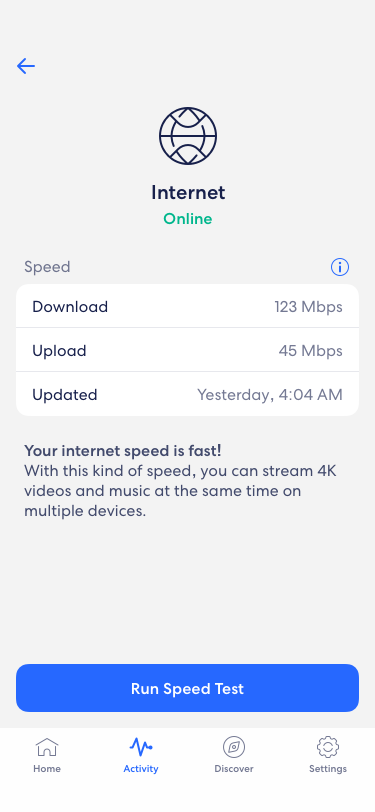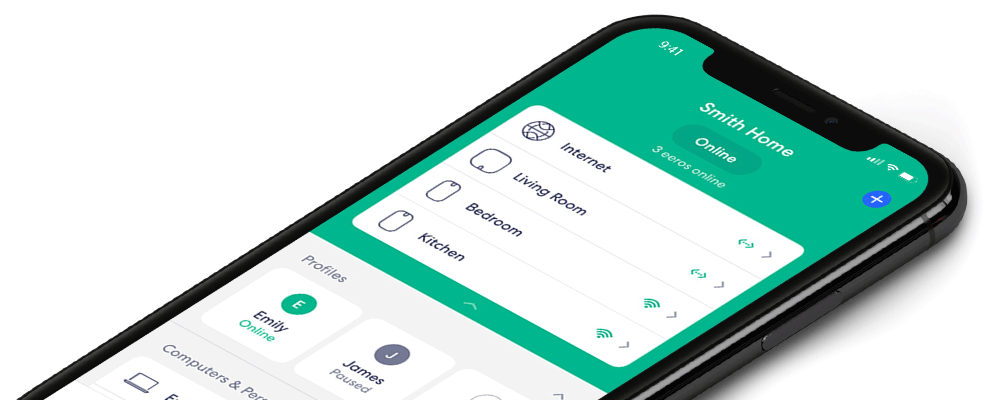Understanding your eero speed tests
What do my speed test results indicate?
The speed test results on the dashboard of your eero app show your network’s download and upload speeds. Your download speed is a measure of how fast information is traveling from the Internet to your eero network, and your upload speed reflects the speed of traffic going in the opposite direction.

These speeds are measured in quantity over time, specifically in megabits per second (Mbps). A megabit is a million bits, and a bit is a very small piece of data. Why is this important, you ask? The higher the number you see in your app, the speedier your Internet activity should be. For example, if you have a download speed of 2 Mbps, a typical web page will load in about half a second and download a 5-minute song should take 20–30 seconds. If you have a download speed of 12 Mbps, that web page will load instantly, and the same song will download in about a second.
Here are the speeds required for some of our favorite activities:
| Speed (Mbps) | Activity |
| 100+ | Multiple HD video streams |
| 50+ | Video chat & gaming |
| 25+ | Netflix or YouTube |
| 5+ | Pandora, Spotify or web browsing |
How are eero’s speed test results measured?
The speed test in the eero app measures the speed that your eero network receives from your Internet Service Provider (ISP). The eero app will keep record of the results of your last 30 speed tests. These results reflect the rate at which data is downloaded to, and uploaded from, your gateway eero and a nearby server. Since the test is analyzing speed from your gateway eero out to the Internet and back, your results won’t be affected by where you are when you initiate the test. In other words, whether you run the test in your living room, bedroom, or away from your home, the app will be testing the same thing.
